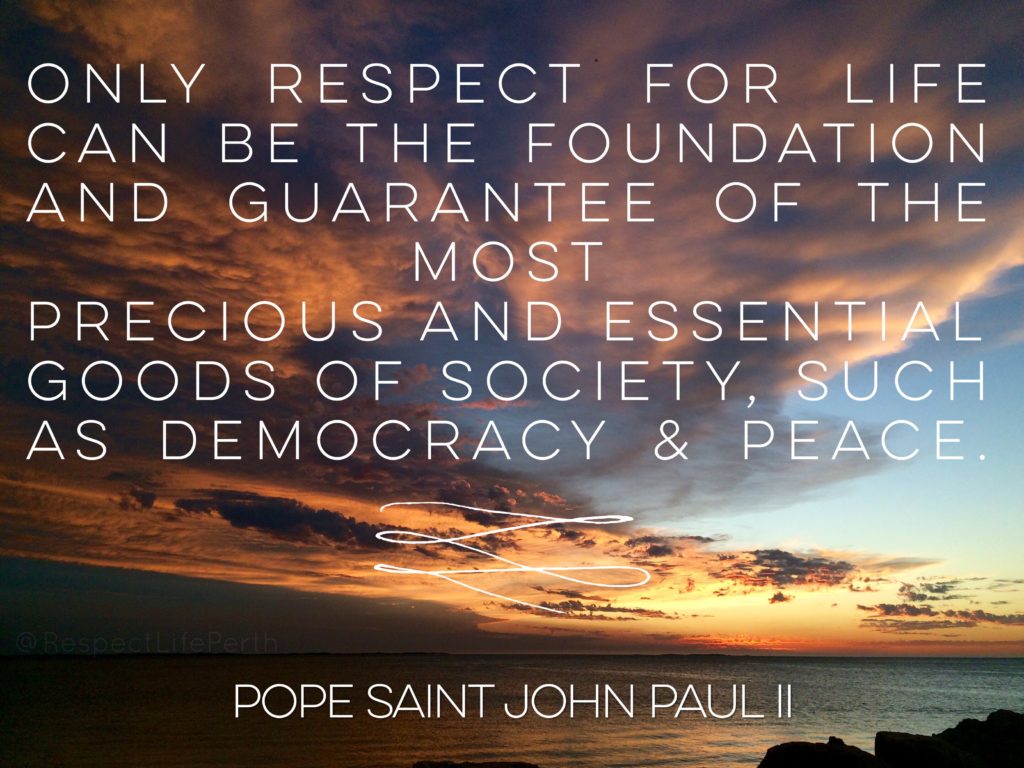“See, I have set before you this day life and good, death and evil. … I have set before you life and death, blessing and curse; therefore choose life, so that you and your children may live.”
(Dt 30:15, 19)
In Pope Saint John Paul II’s 1995 encyclical, Evangelium Vitae, he made a “most urgent appeal” to “all the members of the Church, the people of life and for life,” that
together we may offer this world of ours new signs of hope, and work to ensure that justice and solidarity will increase and that a new culture of human life will be affirmed, for the building of an authentic civilization of truth and love.
In this society, a “culture of death” is prevalent, where efficiency is valued above all else, any life which does not contribute to efficiency is considered a burden, and pain and struggle are to be avoided at all costs. A life which would require
greater acceptance, love and care is considered useless, or held to be an intolerable burden, and is therefore rejected in one way or another. A person who, because of illness, handicap or, more simply, just by existing, compromises the well-being or life-style of those who are more favoured tends to be looked upon as an enemy to be resisted or eliminated.
Thus, there is confusion amongst members of society between good and evil, “precisely in relation to the fundamental right to life”. We find ourselves right in the middle of this conflict; we are all involved, and all hold the responsibility of “choosing to be unconditionally pro-life”. We are life, we give life, and as stewards of the earth, though not an easy task in today’s society, it is our responsibility to nurture life.

